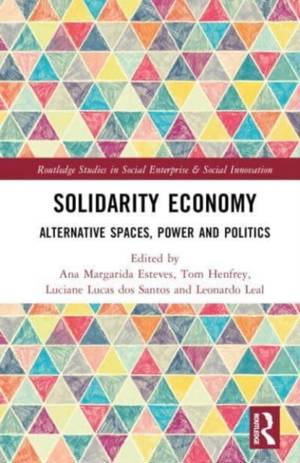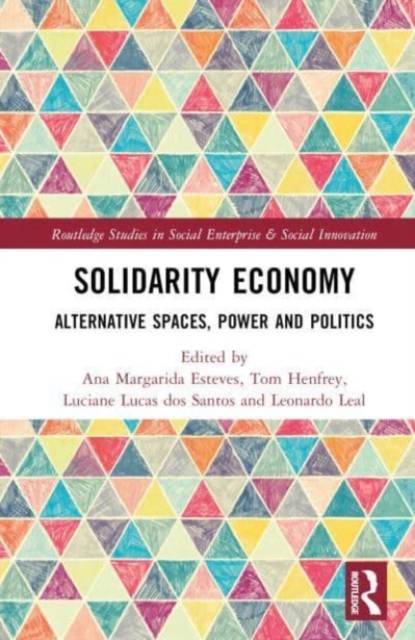
- Afhalen na 1 uur in een winkel met voorraad
- Gratis thuislevering in België vanaf € 30
- Ruim aanbod met 7 miljoen producten
- Afhalen na 1 uur in een winkel met voorraad
- Gratis thuislevering in België vanaf € 30
- Ruim aanbod met 7 miljoen producten
Solidarity Economy
Alternative Spaces, Power and Politics
Omschrijving
Solidarity economy-based alternative spaces result from an interface among structural factors, institutional regimes and forms of collective action that mobilise narratives of change, collective identities and non-capitalist economic practices.
This book analyses how solidarity economy initiatives develop alternative spatialities as counterpower to mainstream economy. Based on case studies in Europe, Latin America, and Asia, it elaborates on how different scales of solidarity economy-based alternative spaces result from an interface among structural factors, institutional regimes and forms of collective action that mobilise narratives of change, collective identities and non-capitalist economic practices.
Specificaties
Betrokkenen
- Uitgeverij:
Inhoud
- Aantal bladzijden:
- 256
- Taal:
- Engels
- Reeks:
Eigenschappen
- Productcode (EAN):
- 9781032307060
- Verschijningsdatum:
- 20/10/2023
- Uitvoering:
- Hardcover
- Formaat:
- Genaaid
- Afmetingen:
- 152 mm x 229 mm
- Gewicht:
- 503 g

Alleen bij Standaard Boekhandel
Beoordelingen
We publiceren alleen reviews die voldoen aan de voorwaarden voor reviews. Bekijk onze voorwaarden voor reviews.








